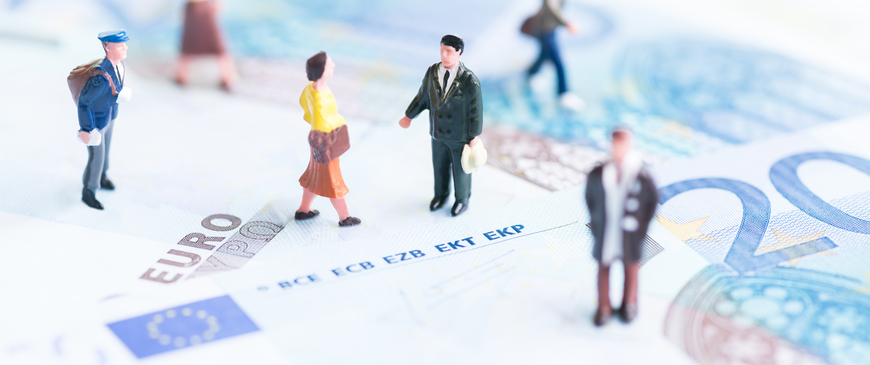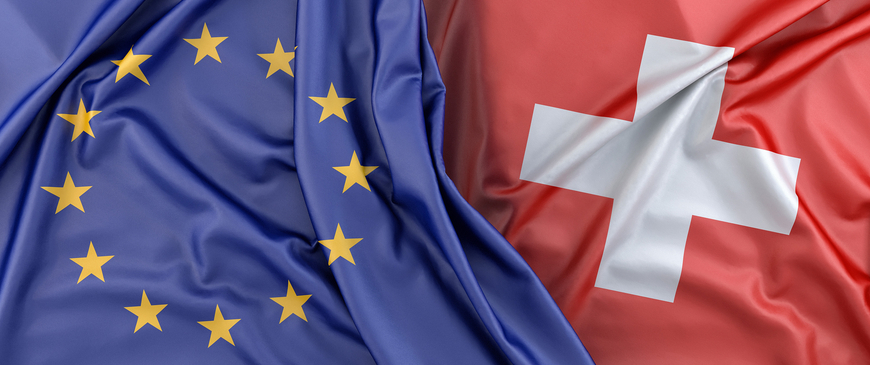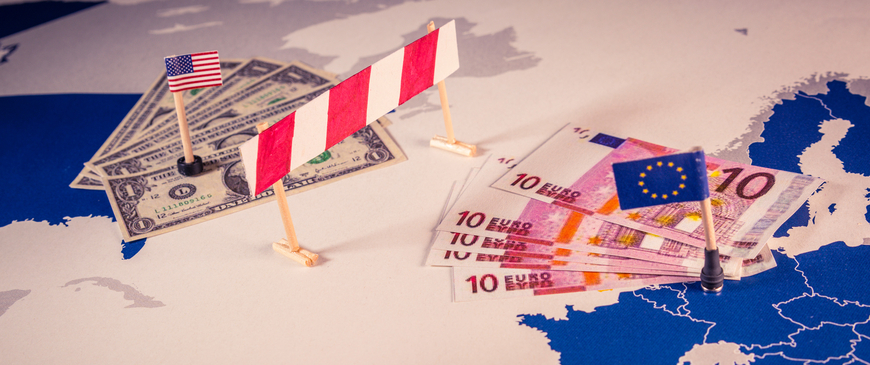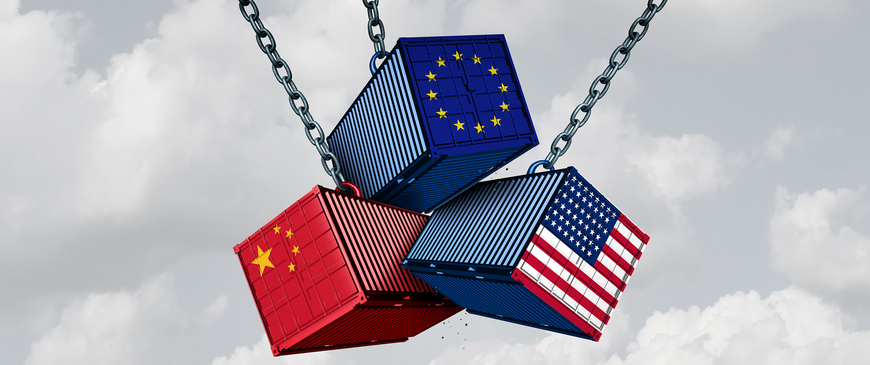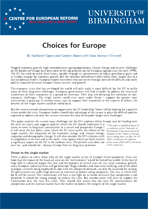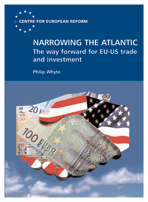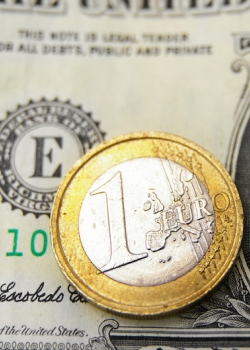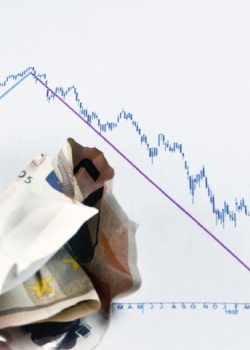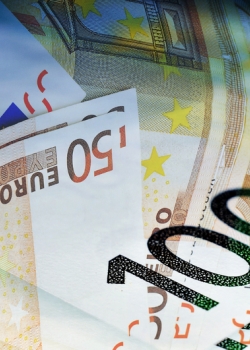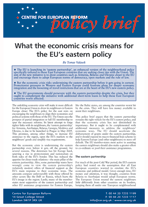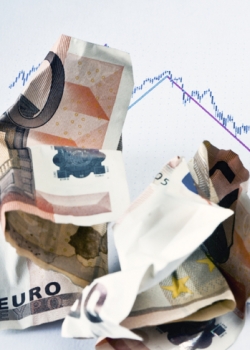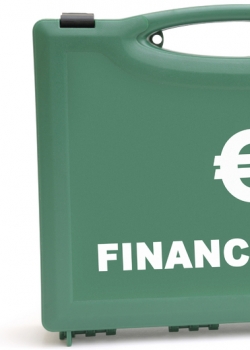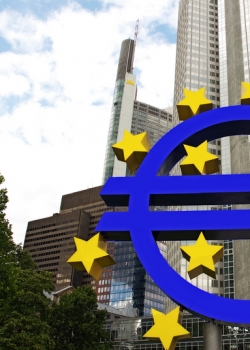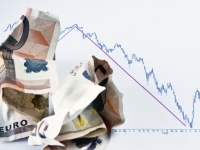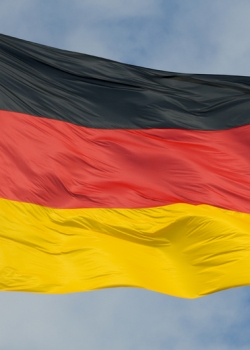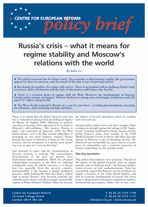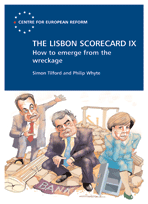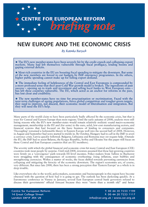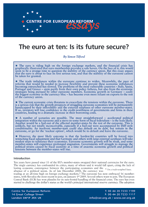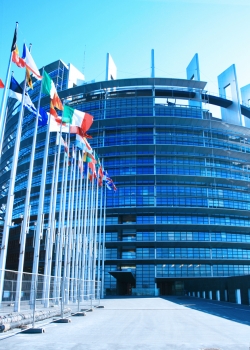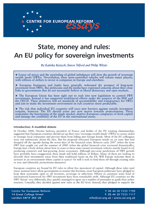Single market, competition & trade
Choices for Europe
01 May 2009
CER - University of Birmingham
Sluggish economic growth, high unemployment, ageing populations, climate change and security challenges on the borders of Europe have been some of the top priorities on the European agenda since the early 1990s. The EU has tried to tackle these issues, notably through its commitments to reduce greenhouse gases and its Lisbon strategy for economic growth.
Narrowing the Atlantic: The way forward for EU-US trade and investment
29 April 2009
The financial crisis has provoked a dramatic contraction in world trade. With economic activity declining and job losses rising, protectionist pressures are mounting.
The G20 summit – a distraction?
03 April 2009
The good news first. The summit delivered more than expected. The trebling of the funds available to the IMF goes well beyond anything expected and is very welcome.
The Europeans at the London summit
01 April 2009
Christine Lagarde, the French finance minister, threatens to walk out of the London G20 summit unless France gets its way on tougher financial regulation. The toppled Czech Prime Minister, Mirek Topolanek, who happens to hold the EU presidency, describes the US fiscal stimulus as “the road to hell”. Not one EU leader deems it necessary to support Gordon Brown publicly when he tries to drum up support for a more concerted international effort to revive the global economy.
Europe's flagging response to the financial crisis
01 April 2009
Since the 1980s, many of the largest economies in the EU have developed unenviable reputations for protracted economic downturns followed by sluggish recoveries.
In the name of EU solidarity
01 April 2009
Is a new iron curtain threatening to divide the European Union? Hungary’s prime minister, Ferenc Gyurcsany, raised the spectre last month, when he warned that the eastern members were descending into economic mayhem while the richer EU countries were looking on unsympathetically.
What the economic crisis means for the EU's eastern policy
01 April 2009
The EU's new 'eastern partnership' risks being undermined by the economic crisis. The initiative offers countries like Armenia and Ukraine fresh incentives, such as free-trade agreements and easier visa regimes, to adopt European norms of democracy and open markets.
Issue 65 - 2009
27 March 2009
- Europe's flagging response to the financial crisis , Philip Whyte
- Carbon price collapse threatens the EU's climate agenda, Simon Tilford
- In the name of EU solidarity, Katinka Barysch
What if the eurozone broke up?
23 March 2009
The future of the euro may not be secure, warned the CER’s Simon Tilford in a January 2009 essay. The current economic crisis threatens to exacerbate the tensions within the eurozone, and an insolvent member-state... could default and leave the eurozone. Since January, the economic crisis has deepened further, and the eurozone’s weakest economies have come under even greater strain.
How serious is the threat to the single market?
19 March 2009
There has been a lot of anguished talk about how the EU’s single market is under threat. Much of this alarm has focused on government support for struggling car firms and public bail-outs of crisis-ridden banks.
The real G20 agenda
13 March 2009
Finance ministers from the G20 countries are meeting in London this weekend to prepare for the global economic summit at the start of April. Expectations are high. But what will the summit be about?
Financial regulation: Is the Channel narrowing?
27 February 2009
On February 25th 2009, a Commission-appointed taskforce headed by Jacques de Larosière published its much-awaited report on financial supervision in the EU.
Germany: Between a rock and a hard place
19 February 2009
Twelve months ago it seemed inconceivable that any member of the EU could face a sovereign debt crisis. It would have been the stuff of fantasy to argue that Ireland or Austria could be among those at risk.
Russia's crisis - what it means for regime stability and Moscow's relations with the world
19 February 2009
The global financial crisis has had a tremendous impact on Russia. Its much-vaunted resurgence has hit the buffers, and the mood in Moscow is one of mounting anxiety.
The Lisbon scorecard IX: How to emerge from the wreckage
13 February 2009
EU governments are taking increasingly unorthodox measures to prevent the economic crisis from overwhelming their economies. They are right to intervene, but their policies must not undermine Europe's long-term economic growth prospects in the process.
New Europe and the economic crisis
02 February 2009
The EU's new member-states have been hit hard by the credit crunch and collapsing export markets. The Central and East Europeans sense that their post-Cold War growth model – consisting of liberalisation and EU integration – is broken.
The euro at ten: Is its future secure?
07 January 2009
The euro is riding high and the financial crisis has illustrated the safe haven that membership provides. On the face of it, the future of the single currency looks rosy.
The EU's fleeting chance for global leadership
01 December 2008
The economic crisis offers unprecedented opportunities for reforming global rules and institutions. Furthermore, the Obama presidency - which Europeans expect to be less unilateralist than that of George W Bush - will give the EU a chance to work with the US in tackling a host of international problems.
State, money and rules: An EU policy for sovereign investments
01 December 2008
The debate about sovereign wealth funds will return as global growth and commodity prices recover. European governments have been right to reject new EU rules on SWFs, and instead support multilateral efforts to set voluntary standards.
Is EU competition policy an obstacle to innovation and growth?
20 November 2008
European countries need to improve their record of developing high-tech businesses if they are to prosper. This was explicitly recognised in the EU's Lisbon agenda of economic reforms launched in 2000. The reasons for Europe's poor record of innovation are complex, but one factor may be competition policy.

